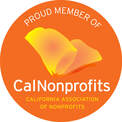|
Service Providers in East Palo Alto Consider Their Relationship With The Community by: Zoe Edelman Before Lesia Preston became the Executive Director of East Palo-Alto based Ecumenical Hunger Program (EHP) in 2011 she served as one of the organization’s first volunteers. And then staffed the food pantry. And then served as food coordinator. In fact, during her more than 40 years with EHP, “I think I have done almost every part of the work EHP does,” Preston said. Preston’s history with EHP - a nonprofit organization that provides 27,000 individuals with needs such as food, clothing, and more - began at age 13 in 1978, when her mother brought her as a volunteer. “I always had a passion for helping others,” Preston said. “My mother used to bring a lot of people in need to stay with us. So I think it was embedded in me from a very young age.” Preston’s approach to service, shaped by her long-time knowledge of East Palo Alto, highly contrasts the perspectives provided by those who are new to the area. Newer service providers, who may be of different races, educational backgrounds and socioeconomic status than the majority of East Palo Alto residents, must grapple with balancing differing ideology and fresh ideas with their outsider status. Among those newer to the area is Jenny Bloom. Born and raised in Texas, Bloom received a Masters in Education before moving to East Palo Alto in 2014. Since then, she has become an elected Ravenswood City (the school district which includes East Palo Alto) school board trustee. “Technically I am one of the gentrifiers, since we are not from here. My husband is white. I'm Indian, and we bought at home in East Palo Alto,” Bloom explained. Despite her recent arrival to the city, Bloom aims to make a difference. “This is our home. This is where we plan to be. This is where we're planning our future. And so as we were thinking about that, how do we continue to really invest in deep relationships with the people in our community?” Bloom asked. This investment in deep relationships translated on both the personal and organizational level for Bloom. When she and her husband first arrived in the city, “we made a point to make sure that we knew our neighbors. And my next door neighbor we call her grandma Finley, because... I was there with my kids almost every day.” Bloom was also inspired to use her background in education to “invest my time and energy in community organizations,” including through her role on the school board. This role has felt particularly personal for Bloom, as the only parent of students enrolled in East Palo Alto schools currently serving on the board. “I'm making decisions [that] really do affect my kids... when I talk about what curriculum we're deciding, I'm deciding what science curriculum my kid is going to be learning.” The weight of her decisions on the school board also resonates deeply with her relationship to the broader East Palo Alto community. “We have to make a decision and then live amongst the community that we made the decision for... it's something that if you don't live there, and you don't think about what the community is saying, what they want, what they've been through, then it’s an [easier] decision to make.” Community input is also top of mind for Preston, who uses both her experience within EHP to be “a better director, a better team player,” and her life in East Palo Alto to adapt to the needs of the community. “Communities evolve, people evolve, and you need to be able to ensure that as time goes on, you're still doing what's needed, not just what you assume is needed,” she said. Preston aims for EHP to serve as a “one-stop shop,” for community members to fulfill their needs for food, furniture, clothing, rental assistance, and even life-skills workshops. But more importantly, Preston believes service is “not just handing out stuff... It's how you do it.” Beyond merely providing support, service providers pay particular focus to how service is done, a reality which may not be universally agreed upon by all, especially between those originally from East Palo Alto compared to those who are not. Irene St. Roseman has confronted this challenge head on, through her roles both as Executive Director of Realizing Intellect through Self-Empowerment (RISE) from 1996-2004, and more recently, from 2016-2021, as co-founder and Head of School at charter school Oxford Day Academy. St. Roseman’s mission was to be more than just another outside force “beta-testing” service in East Palo Alto, but to create change centered around what she described as “longevity and sustainability.” Her approach with Oxford Day Academy was two-pronged: urging students to engage in socially-conscious service and “pushing kids to perform academically and not holding them as victims of the circumstances.” This focus on challenging curriculum led to “resistance from various community members,” who deemed her academic approach, which utilized the esteemed personal-learning Oxford Tutorial system, too tough. St. Roseman disagrees. “[Low standards] create this level of mediocrity around the expectations of what students of color can do,” she countered. Her rigorous approach paid off. At Oxford Day Academy, students who entered the school three or four grade levels academically behind emerged on or nearly at grade level by graduation, according to St. Roseman. “The impact was great, but we were still coming into the community [from outside] to provide support, so it’s a double edged sword,” she explained. “Some people would say that I can’t identify, because I’m not from the community,” St. Roseman said. This difference was occasionally reinforced by her ethnic background: hailing from St. Lucia, St. Roseman identifies as Black, but not African American like many of the community members she worked with in East Palo Alto. Racial identity has particular resonance in relation to education services in Ravenswood City School District, where the vast majority of students are from minority backgrounds, according to demographic data. St. Roseman was troubled by a negative shift in racial attitudes she observed from her original stint in East Palo Alto with RISE to her experience with Oxford Day Academy more than a decade later. Whereas at RISE students were highly aware of Black culture and success, students at Oxford Day Academy had “not one single positive thing [to say] about a Black person,” a pessimism she attributed to a “loss of cultural custodians,” as the Black community has been pushed out of East Palo Alto. This population exodus and demographic shift in East Palo Alto - where the Black student population declined from 58% to 15% between 1987 and 2006, while the Hispanic population more than doubled from 32% to 75%, according to the New York Times - has also resulted in a decline in school enrollment and a change in the scope of the assistance service organizations can provide. “Due to the cost of living, and the rise of charter and private schools, the number of students we serve has diminished significantly in the last 5 years,” wrote Jenna Wachtel Pronovost, Executive Director at Ravenswood Education Foundation. Ravenswood Education Foundation works closely with the school district “to ensure that students in East Palo Alto have access to high quality learning opportunities that are on par with those in neighboring communities,” Pronovost explained. Though the foundation has grown significantly since 2007 to now provide nearly a quarter of the school district’s funding, loss of community members “impacts the amount of public funding the district has to work with to meet students' needs.” Since entering her role three years ago, Pronovost has weathered the unpredictable shifts brought by the pandemic and found gratitude in the support and investment of community members. “I love being part of a community that shares values around equity and where members are willing to roll up their sleeves and even sacrifice some of their own privilege for the betterment of our greater community,” wrote Pronovost. Despite differing methodology and backgrounds, those doing work in the community express a common thread about their work: the importance of local impact. “At the end of the day, the small things that I do on my street is going to be more impactful for my daily life and for my neighbor's daily life,” said Bloom. “If we can think about how to be good neighbors, that really does impact the city as a whole.”
1 Comment
|
EHP HappeningsKeep current by linking with our RSS feed! Categories |
|
EHP is a proud member of the California Association of Nonprofits.
Read about Ecumenical Hunger Program on Charity Navigator, America's largest and most-utilized independent evaluator of charities, and add us to your charities! EHP is a platinum level GuideStar Exchange participant, demonstrating its commitment to transparency. Write a review about us! |
Open Monday-Thursday, 8 AM-6 PM
2411 Pulgas Avenue ~ East Palo Alto, CA ~ 94303 ~ 650.323.7781 ~ [email protected]
2411 Pulgas Avenue ~ East Palo Alto, CA ~ 94303 ~ 650.323.7781 ~ [email protected]

 RSS Feed
RSS Feed


